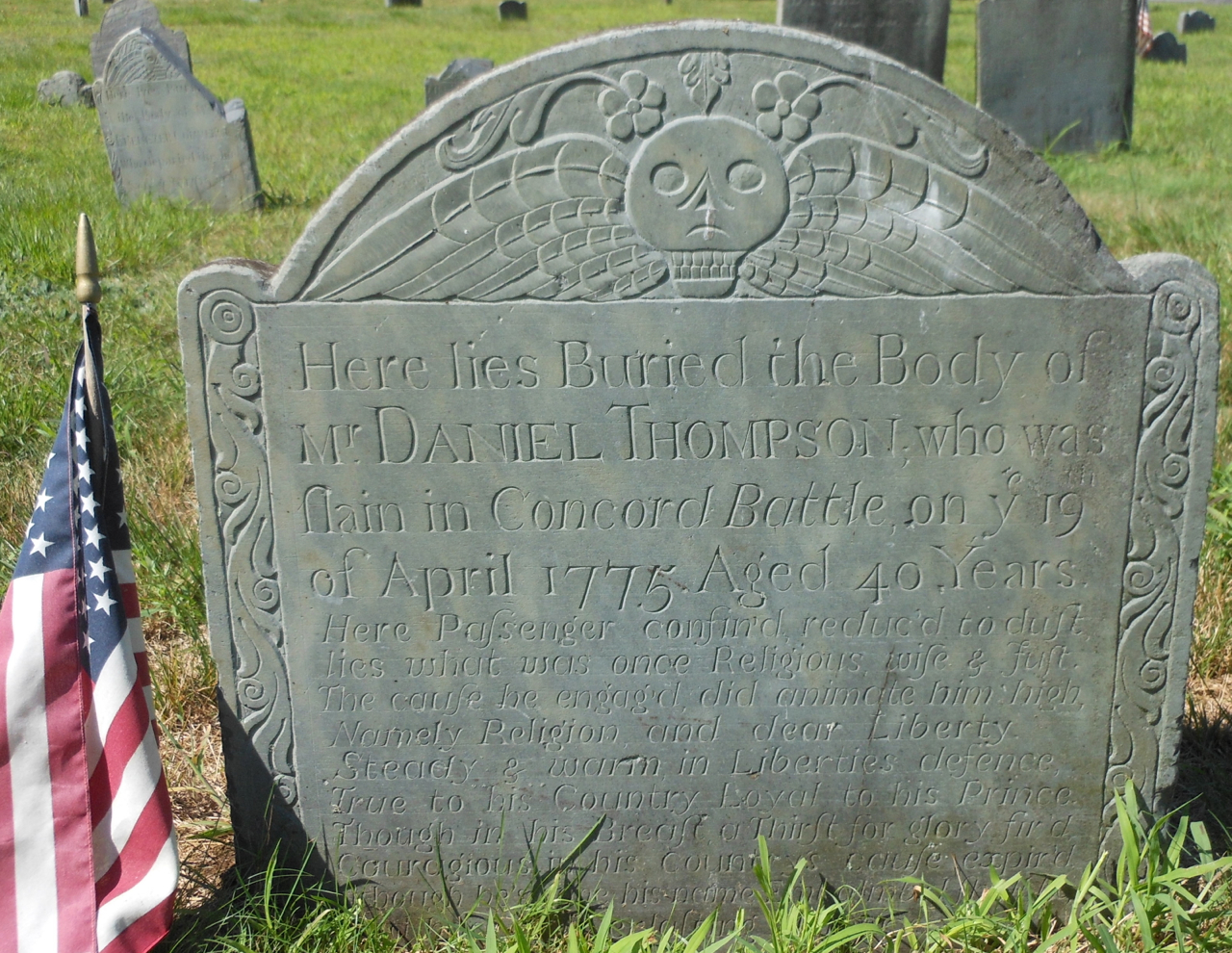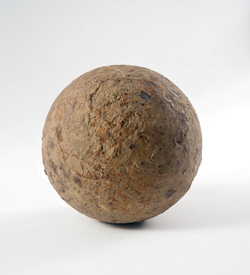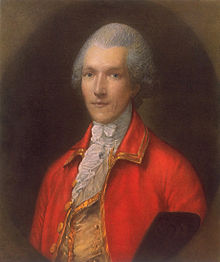The Death of Daniel Thompson
The published Woburn vital records say Daniel Thompson was born on 9 Mar 1734, making him forty-one years old at the Battle of Lexington and Concord (unless that’s an unlabeled Old Style date). He and his wife Phebe had three children, born 1761–1765.
According to a family history, The Memorial of James Thompson, of Charlestown, Mass., 1630-1642, and Woburn (1887), this was the story of Thompson’s death:
He was a man of ardent temperament, full of activity and enterprise. Previous to the Revolutionary war he was one of the guards of the royal governor [most likely the horse guard], and yet, in the troubles which preceded that event, he ever zealously espoused the cause of his native country.I’m skeptical about that quotation, though the aggressive attitude seems to fit with going too close to the road and being cut down by a flanker. Abram English Brown’s Beneath Old Roof Trees (1896) added the comforting claim that one of Daniel Thompson’s own brothers killed that grenadier and brought his firelock back home to Woburn.
On the morning of the 19th of April, 1775, hearing of the march of the British toward Concord, he mounted his horse and hurried to the north village, a mile distant, for the purpose of rousing his friends to oppose the march of the enemy. There is a tradition that of all the men he met only one hesitated, and when that one asked him if he were not too hasty and likely to expose himself to great danger, he instantly replied, “No! I tell you our tyrants are on their march to destroy our stores, and if no one else opposes them to-day, I will!” Immediately hurrying away to the scene of action, he boldly took his position and poured his fire into the ranks of the British.
On the retreat of the enemy, he took a station near the road. Stepping behind a barn to load, and then advancing round the corner of the building, he fired diagonally through the platoons of the enemy, so as to make every shot effectual.
A grenadier, who watched his movements, was so enraged that he ran around the corner of the barn and shot him dead on the spot, while he was in the act of reloading his gun. Tradition says that a well directed ball from another Woburn gun prevented the grenadier from ever rejoining his comrades.
More certainly, we know that Thompson died within the borders of Lincoln. His body was brought back to Woburn. On 21 April there was a joint funeral with Asahel Porter, detained by the regulars in the early hours of the 19th and killed in the shooting on Lexington common.
Thompson’s gravestone appears above, courtesy of Find a Grave. It says:
Here lies Buried the Body ofThe phrase about “Loyal to his Prince” suggests the Thompson family erected this stone in 1775 when most Americans still professed allegiance to King George III and saw themselves as fighting corrupt British ministers rather than the whole British constitutional system. If the Thompson family had had to wait another year for the stonecarving, the elegy would surely have praised Thompson’s loyalty to his country but not to his “Prince.”
Mr. DANIEL THOMPSON who was
slain in Concord Battle on ye. 19th.
of April 1775. Aged 40 Years.
Here Passenger confin’d reduc’d to dust,
lies what was once Religious wise & Just.
The cause he engaged did animate him high,
Namely Religion and dear Liberty.
Steady and warm in Liberties defence,
True to his Country, Loyal to his Prince.
Though in his Breast a Thirst for glory fir’d,
Courageous in his country’s cause expired.
Although he’s gone his name Embalmed shall be,
and had in Everlasting Memory.
Daniel and Phebe Thompson’s daughter, born in 1762 and also named Phebe, married Josiah Pierce in 1787 and settled in Maine. Josiah was a younger half-brother of Benjamin Thompson, who by then had moved from Woburn to Europe on his way to becoming Count Rumford.












